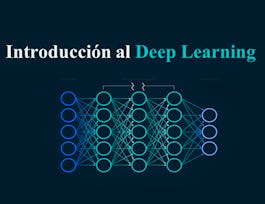Businesses run on data, and data offers little value without analytics. The ability to process data to make predictions about the behavior of individuals or markets, to diagnose systems or situations, or to prescribe actions for people or processes drives business today. Increasingly many businesses are striving to become “data-driven”, proactively relying more on cold hard information and sophisticated algorithms than upon the gut instinct or slow reactions of humans.


Business Analytics Executive Overview
This course is part of Introduction to Business Analytics and Information Economics Specialization
Taught in English
Some content may not be translated

Instructor: Douglas B. Laney
17,137 already enrolled
Included with 
Course
(276 reviews)
Details to know

Add to your LinkedIn profile
5 quizzes
Course
(276 reviews)
See how employees at top companies are mastering in-demand skills

Build your subject-matter expertise
- Learn new concepts from industry experts
- Gain a foundational understanding of a subject or tool
- Develop job-relevant skills with hands-on projects
- Earn a shareable career certificate


Earn a career certificate
Add this credential to your LinkedIn profile, resume, or CV
Share it on social media and in your performance review

There are 4 modules in this course
This first module exposes and explains key data and analytics concepts from Big Data to data warehousing to natural language query, and everything in-between. Next we will explore various analytic techniques, types of visualizations, and types of analytics solutions. The course will continue with identifying and learning about key data and analytics roles and organization structures, including chief data and analytics officers, data scientists, and analytics centers of excellence. Alternatives to direct hiring, such as outsourcing and crowdsourcing, will also be covered. Finally, the course will scrutinize analytic trends and futures.
What's included
18 videos9 readings2 quizzes
Over the course of the module, you will also see how data and analytics in each of these organizations can be used in similar ways, in similar business functions. Accordingly, you will appreciate that to be truly data-driven, you need not only look to examples in your own industry, but, also learn and apply analytics concepts from organizations in other fields.
What's included
11 videos2 readings1 quiz
In this module you will learn a bunch of crucial analytical roles and the emergence of new roles in organizations from the C-suite down to various analyst roles. You will take a brief look at the job descriptions and the responsibilities. You will also put yourself in either a job seeker’s or a recruiter’s shoes to see what kind of skill sets are the most important and which position fits you the best. For example, it will introduce you to the three core skills of the data scientist and the crucial soft skills required to be a successful data scientist.
What's included
11 videos2 readings1 quiz1 peer review
This module explores telling stories, through data, that connect emotionally with your audience. It will also review examples and figures that make the concept easy to understand. You will learn the major do’s and don’ts of creating dataviz and rules that lead to the clear depiction of your findings. This unit specifically focuses on Dona Wong’s guidelines for good data visualization and charts. The last leg of Module 4 teaches the three tests that help you improve your visualization. In the final step of dataviz execution, you will learn the McCandless Method for presenting visualizations. This five-step process produces the most effective communication of the graphics to your audience.
What's included
14 videos4 readings1 quiz1 plugin
Instructor

Recommended if you're interested in Leadership and Management

Coursera Project Network

Coursera Project Network

University of Illinois at Urbana-Champaign

Coursera Project Network
Prepare for a degree
Taking this course by University of Illinois at Urbana-Champaign may provide you with a preview of the topics, materials and instructors in a related degree program which can help you decide if the topic or university is right for you.
Why people choose Coursera for their career




Learner reviews
Showing 3 of 276
276 reviews
- 5 stars
71.01%
- 4 stars
21.73%
- 3 stars
5.07%
- 2 stars
0.72%
- 1 star
1.44%
New to Leadership and Management? Start here.

Open new doors with Coursera Plus
Unlimited access to 7,000+ world-class courses, hands-on projects, and job-ready certificate programs - all included in your subscription
Advance your career with an online degree
Earn a degree from world-class universities - 100% online
Join over 3,400 global companies that choose Coursera for Business
Upskill your employees to excel in the digital economy
Frequently asked questions
Access to lectures and assignments depends on your type of enrollment. If you take a course in audit mode, you will be able to see most course materials for free. To access graded assignments and to earn a Certificate, you will need to purchase the Certificate experience, during or after your audit. If you don't see the audit option:
The course may not offer an audit option. You can try a Free Trial instead, or apply for Financial Aid.
The course may offer 'Full Course, No Certificate' instead. This option lets you see all course materials, submit required assessments, and get a final grade. This also means that you will not be able to purchase a Certificate experience.
When you enroll in the course, you get access to all of the courses in the Specialization, and you earn a certificate when you complete the work. Your electronic Certificate will be added to your Accomplishments page - from there, you can print your Certificate or add it to your LinkedIn profile. If you only want to read and view the course content, you can audit the course for free.
If you subscribed, you get a 7-day free trial during which you can cancel at no penalty. After that, we don’t give refunds, but you can cancel your subscription at any time. See our full refund policy.

